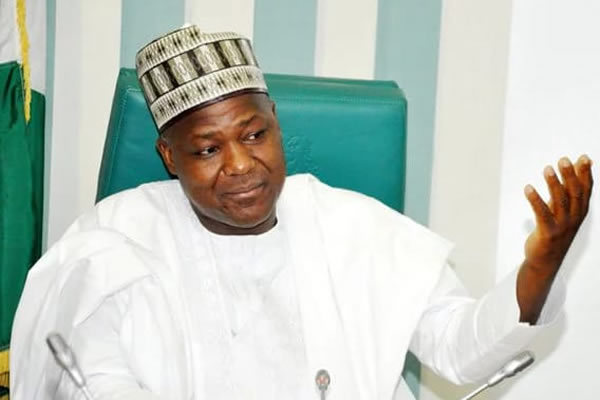The sacked Chairman of the House of Representatives Committee on Appropriation, Hon. Jibrin Abdulmumini yesterday continued his campaign against Speaker Yakubu Dogara, and others, by alleging that monies amounting to about N10 billion had been received as running costs by all 10 principal officers, from when they joined the National Assembly.
Abdulmumini, in a statement, claimed Dogara received N1.5 billion in sub-head allowances from when he was elected into the House in 2007, to date, while Deputy Speaker Yussuff Sulaimon Lasun has received N800 million.
Dogara, was Chairman, Committee on House Services in the seventh assembly, while Lasun was Deputy Chairman, Committee on Water Resources.
According to Abdulmumini, the allowances, which he termed running costs, were collected by many members and used as personal funds.
“No more, no less – case closed! Most of these members used it to acquire properties, cars and live a life of luxury they never lived before coming to the House. Though, there exist systems for retirement of such money but a simple investigation by a primary school pupil will reveal the massive fraud therein,” he said.
He alleged that the Majority Leader, Hon. Femi Gbajabiamila, who was minority leader in the sixth and seventh assemblies received N1.2 billion, while Deputy House Leader, Jibril Buba also received N1.2 billion from 2007 to date.
“Chief Whip Alhassan Ado Doguwa who has been in the House since 2003 has received N1.2 billion, while Deputy Chief Whip has received N700 million from 2011 to date.
“Minority Leader Leo Ogor has been in the House from 2007 to date. He has received N1.2 billion. Deputy Minority Leader Barde has been in the House from 2011 to date. He has received N700 million. Minority Whip Chuma has been in the House from 2007 to date. He had received N800 million. And finally, Deputy Minority Whip, Binta has been in the House from 2011 to date. She has received N700 million,” he said.
“So, in between these 10 principal officers, the country has pumped about N10 billion – and still counting. As I have mentioned earlier, in most cases, with few exceptions, these funds are diverted for personal use. I will provide further break down of these figures in due course. I will also provide 50 additional names of members with worst cases of diversion of such funds in due course so we can name and shame them,” Abdulmumini added.
The embattled lawmaker added that the ‘running costs’ was outside of salaries of lawmakers.
“The consequential effect of dealing with corruption in the House, especially the allowances issue, will take its toll on even elections. Candidates usually spend so much money hoping that they can recoup from the huge allowances they will receive when elected into House. When you know that there is no such money in the House to be shared, I am sure nobody will want to put in so much money just to win an election to the House. The resultant effect will be that only people who truly want to serve will vie for the office, and voters will be obliged to vote according to the dictate of their conscience. This is just one advantage,” he added in the statement.
Meanwhile the House has said it would no longer join issues with Abdulmumini over his stream of allegations.
The Chairman of the Committee on Media and Publicity, Hon. Namdas Abdulrazak said the party, the All Progressives Congress (APC) has directed all parties to stop commenting publicly on the matter.
We abide by the party’s directive, Namdas said.
He however queried why Abdulmumini cannot wait for the anti-graft agencies to whom he has submitted petitions, to do their job.
It should be recalled that last week, all 10 principal officers, in a statement, jointly clarified that the decision to remove Abdulmumini, was a collective decision.
“The decision to relieve the erstwhile Appropriation Chairman of his position was a collective decision of the leadership in response to unrelenting pressures from the overwhelming majority of Honourable Members who were irked by the former Chairman’s gross abuse of the budget process. Both actions were taken in the best interest of the institution and the nation for which we take full responsibility,” the statement read.


 Forex3 weeks ago
Forex3 weeks ago



 Naira2 weeks ago
Naira2 weeks ago
 Billionaire Watch2 weeks ago
Billionaire Watch2 weeks ago




 Naira2 weeks ago
Naira2 weeks ago




 Naira2 weeks ago
Naira2 weeks ago






 Naira4 weeks ago
Naira4 weeks ago


 Naira1 week ago
Naira1 week ago






 Naira4 weeks ago
Naira4 weeks ago





















